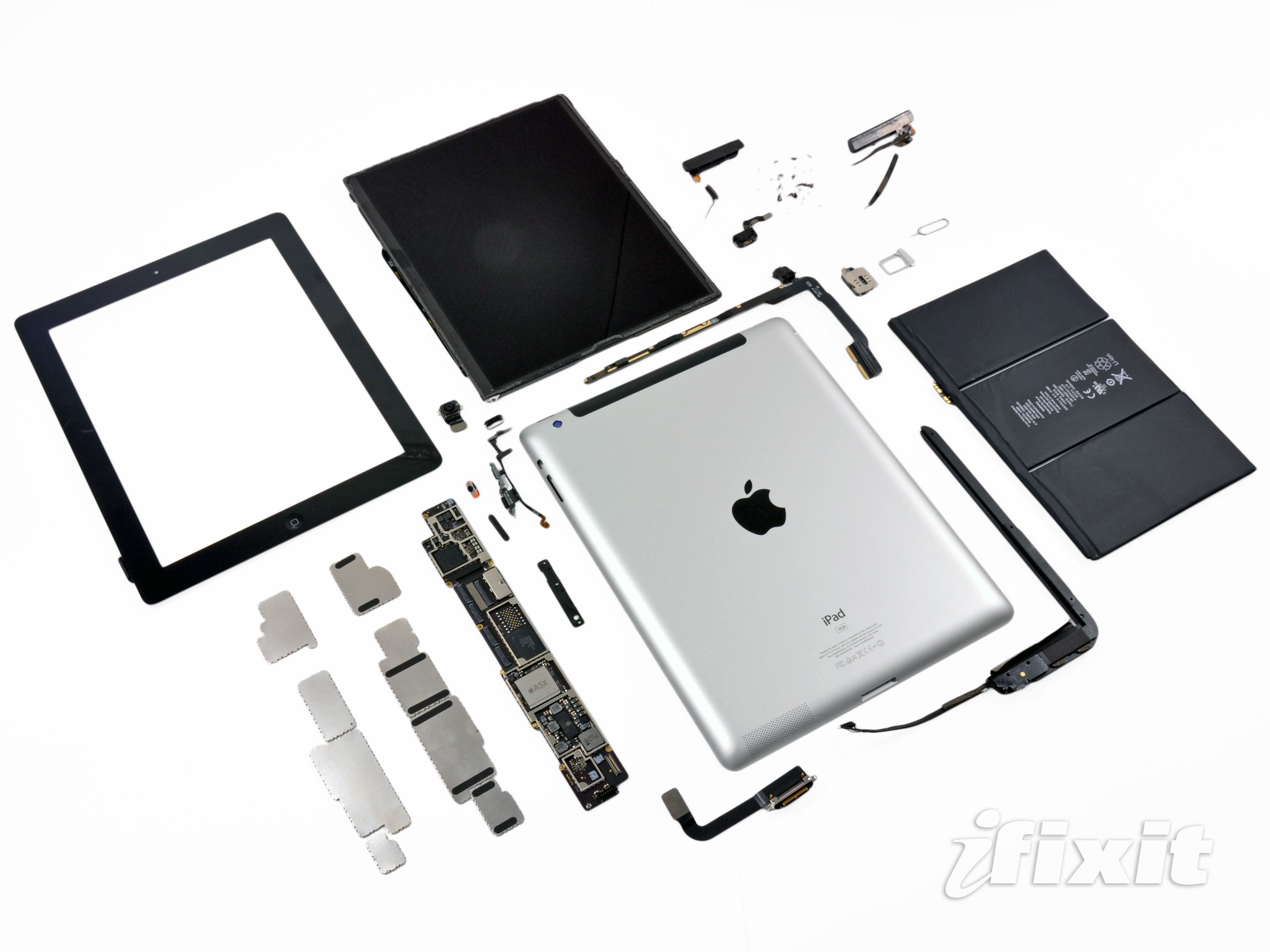Next-Gen iPad Volume Production May Start Next Month
The typical supply chain sources told DigiTimes that Apple's next-generation iPad will go into mass production in the July-August timeframe, with shipments to reach five million in 3Q13. Meanwhile, the second-generation iPad mini may not hit mass production until the September-November window to give the larger tablet more breathing room on the market.
According to the sources, the next-generation iPad 5 will adopt a thin-film-type touch panel solution to reduce its weight by 20 to 30 percent. And unlike the generations before it, Apple will go with a slim bezel design to increase the actual display area. Its industrial design will also be modified, sources said.
The total number of iPad shipments is expected to reach 8 million units in 3Q13, consisting of the iPad 5 and the previous generations still in production. This quarterly number is expected to rise in 4Q13 obviously due to the holiday season, and is one of the reasons why Apple has reportedly delayed the iPad mini 2: because the original unit seriously impacted that sales of its larger brother in 2012.
That said, Apple is supposedly focusing on its iPad 5 tablet in 2013 to prevent another cannibalism from an updated smaller unit during the early days on the market. Sources also believe that the iPad mini 2 will be delayed simply because component suppliers cannot meet Apple's mass-production schedule.
Due to this reported delay, analysts have reduced their prediction on total Apple tablet shipments in 2013. Previously they expected 80 to 100 million units in 2013, with the iPad mini accounting for 35 percent of the volume and the 9.7 inch iPad accounting for 65 percent. That number will likely be lower if Apple delays the production of its second-generation iPad mini, sources said.
Get Tom's Hardware's best news and in-depth reviews, straight to your inbox.

Kevin Parrish has over a decade of experience as a writer, editor, and product tester. His work focused on computer hardware, networking equipment, smartphones, tablets, gaming consoles, and other internet-connected devices. His work has appeared in Tom's Hardware, Tom's Guide, Maximum PC, Digital Trends, Android Authority, How-To Geek, Lifewire, and others.
-
Spooderman Maybe this iPad will actually have a difference in design that will make the increase in price worth it. Unfortunately, it still won't attract the attention of people who know better than to buy everything Apple poops out.Reply -
nevilence Reply10936570 said:10936528 said:Even though there is no innovation here, the Apple worms will love this .
...and what exactly is innovative about the 1,000 different models of Android tablets out there? I'll sell my iPad4 and get 75% of what I paid for it... you're lucky to get 30% of what you paid for any Android tablet. In the long run people who buy Apple products pay far less than others.
size, function, customisation, variable cost, low-high performance to suit needs. android is to iOS as PCs are to Macs. in summary HUGE AMOUNTS OF CHOICE. -
slomo4sho Reply10936570 said:...and what exactly is innovative about the 1,000 different models of Android tablets out there? I'll sell my iPad4 and get 75% of what I paid for it... you're lucky to get 30% of what you paid for any Android tablet. In the long run people who buy Apple products pay far less than others.
The market dictates otherwise. Other same generation tablets (yes, iPad 4 is still current generation) reselling for 75% used? Imagine that. The problem with spouting opinion as if it were fact is that the internet has too much data that is readily available to differentiate your BS from actual facts.
-
house70 Funny how iOS fanbois have resorted to resale value as their last / only argument. Oblivious to the fact that Apple products are the ONLY products available on the market that bear that OS. With zero choice, they fall into one of two categories: either can afford to pay the Apple tax for a new product, or they can't (or won't) do that and buy second hand. The first category will try to get as much money back as possible, hence keep the second hand price inflated.Reply
Either way, they will never experience the product OS richness of Android: not only plenty of devices, but also plenty of Android-based systems to choose from. All this for a lower price paid for NEW products, not used ones. -
somebodyspecial I hope they plan on putting that weight back in via a bigger battery. I'm sick of thinner, and want thicker with longer life in all things mobile.Reply -
richard_35 I totally agree. Stop making them lighter and thin/ smaller and put in a faster graphic gpu/cpu. which it really needs and a firewireconnection would be nice. I bougt the ipad 4 because there i quite a few few handy tools where you can you put your pad1,2 ,sometimes 3 in. But no way 4 and know they again are gonna change dimensions. It;s like pioneer...you pay 70% for marketing and image.Reply
gr.richard
